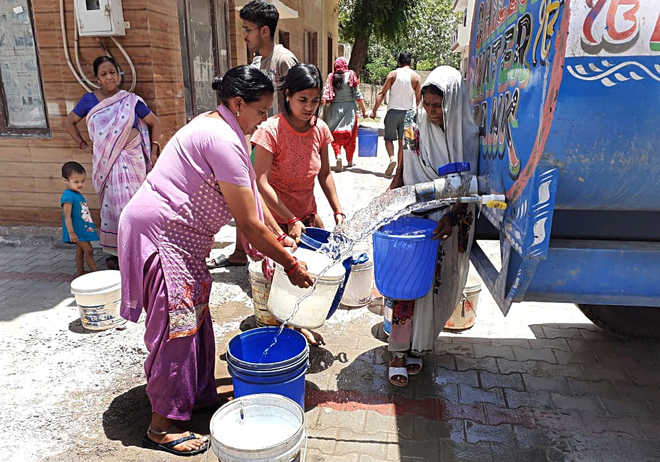Get set to fetch water! Like it or not
Rama Kashyap
Climate change is not a threat any longer, but a reality. Freaky weather conditions, rising temperatures, long spell of summers and flash floods are signs of global warming. Water scarcity, a sign of environment degradation, is assuming huge dimensions in many parts of the world, including India. According to Niti Aayog, 21 Indian cities are likely to face severe water scarcity by 2020. Taps running dry and people queuing up for water is already a grim reality in many cities. Acute water shortage in many villages is forcing women to tread miles together for potable water. Scarcity of drinking water is scary, but equally worrisome are the sharply declining water tables.
Water is precious and it must be conserved to sustain life. We can’t allow water to go down the drain. Rainwater harvesting — preventing wastage by managing rainwater, saving when in excess and using the surplus in dry season — should be compulsory also for new constructions and public buildings, educational institutions and hospitals.
While government devises policies for water conservation, we, the consumers must pitch in to do our part. ‘Mindful consumption’ is the first step towards avoiding wastage. With awareness comes the need to conserve and avoid misuse of resources. Do we realise how much water is wasted when the tap water keeps flowing while we brush our teeth mindlessly? Once conscious, we tend to use water judiciously while doing various mundane activities — shaving, brushing, washing utensils and clothes. Instead of washing fruits and vegetables in running water, we can keep these soaked in a bowl of water, and utilize this waste water for watering the plants. Against 20 to 25 lt water for a bucket bath, shower dispenses about 19 lt per minute (old type shower head). For flushing urine, we use approximately 10 lt water. A staggering quantity of treated potable water is flushed down every day! Outrageous! We must find ways to economise. Dual flush system ensures significant water saving.
While we conserve water, we must also be mindful of energy consumption. Switching off electric gadgets when not in use and turning off lights and fans while going out of the room should be a habit whether at home or in the office. However, significant power saving is possible by keeping air-conditioners at optimum temperature. Why set the temperature so low that we need quilt while sleeping in summer. What a huge electricity wastage it is when the temperature maintained in malls and multiplexes is so low that we start feeling cold! The idea should be to feel cool and comfortable and not create semblance of winter in hot weather. ACs are not only power guzzlers but also add to global warming. Today there are too many AC compressors dotting urban walls that spew fire in summers.
Mindful consumption also implies being aware of the damaging effects of plastic on environment. We must avoid single use plastic and say ‘no’ to poly bags. Carrying a cloth bag is the best option since a paper bag also has negative environment impact in terms of trees chopped for it.
Mindful consumption also extends to ‘mindful merriment’, keeping greener goals in mind, as hyper consumption and thoughtless consumerism are major reasons behind environment degradation.
We ought to be mindful of our consumption to ‘reduce, reuse and recycle’ so as to conserve resources. Even if we can afford, it is a crime to waste resources. Money may be ours but resources are not. Resources belong to the community, the country and the world at large.
The writer is a retired Associate Professor









